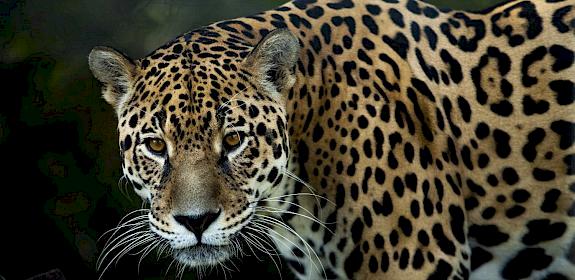“China’s Champions of Change” initiative launched
Beijing, China, 31st May 2018—With support from the European Union (EU), “China’s Champions of Change” initiative to reduce the demand for illegal wildlife products and promote responsible consumption for those that can be sustainably traded, was officially launched in Beijing this week.

The initiative will be led by TRAFFIC and implemented in partnership with WWF and the Zoological Society of London (ZSL), the initiative will give priority to pangolin and rosewood species (Dalbergia spp.) and collaborate with existing efforts to save other threatened species, aiming to contribute towards China’s Ecological Civilisation and the EU’s Action Plan to Tackle Wildlife Trafficking globally.
China has a long history of using pangolin scales in traditional medicine and in recent years, pangolin meat has also been consumed as a luxury food by some consumers as a way of showing off. Rosewood has long been valued for making luxury furniture throughout Chinese history. With the growing wealth in modern China, rosewood furniture has become an emblem of social status.
With pangolin and rosewood resources nearly depleted in China, supply from neighbouring and African countries is growing fast. However, this is leading to a booming illegal trade, threatening the survival of these species and with socio-economic impacts within the range countries.
Efforts to tackle the illegal trade in these species is evident through the up-listing of all eight species of pangolin (four each in Africa and Asia) and more than 300 species of rosewoods at the 17th Conference of the Parties to the Convention on International Trade in Endangered Species of Wild Fauna and Flora (CITES CoP17) in 2016.
Within this context, the EU supported initiative, funded by the Partnership Instrument (PI), is aimed at addressing the excessive demand for pangolins and rosewoods by deploying social and behavioural change communications to raise public awareness about illegal wildlife trade and promote sustainable consumption.
Today’s workshop was attended by more than 50 people, including representatives from the EU Delegation in China, the US and Swedish embassies in Beijing, China’s enforcement agencies, members of the China-based Internet Alliance on Combating Wildlife Cybercrime, academia and institutes, associations, and major wildlife conservation NGOs operating in China.
Since 2017, TRAFFIC’s data show that more than 70 tonnes of pangolin scales and 1,150 tonnes of rosewood, have been seized globally. The actual amounts illegally traded are sure to be much higher and such statistics highlight the urgent need for action to be taken
Steven Broad, Executive Director of TRAFFIC
During the past decade, more than 1 million pangolins have been traded illegally, and they are considered the world’s most heavily trafficked mammal.
Vicky Pollard, Environment councilor of the EU Delegation to China said: “The EU and China are working together to tackle wildlife trafficking, currently one of the most profitable criminal activities worldwide with severe impacts on biodiversity and people. This project will help broaden awareness and understanding amongst stakeholders of the importance of protecting pangolin and rosewood species. It will support China’s commitments and enforcement action and the many good wildlife protection initiatives involving Chinese stakeholders.”
Zhou Fei, Head of TRAFFIC’s China Office and Chief Programme Officer of WWF China said, “TRAFFIC and WWF are fully committed to providing evidence-based support to China-EU efforts to tackle wildlife trafficking by undertaking awareness-raising and communications activities targeting Chinese audiences. We will continue to scale up our public engagement efforts to increase the commitment and capacity of Chinese companies and nationals in Africa to reject illegal wildlife trade and support actions to combat wildlife trafficking.”
“China’s Champions of Change” initiative will run until August 2020 and deliver new insights into what drives consumers to buy pangolin and rosewood products and identify opportunities to change buying behaviour. Targeted industry partners and media sectors operating in China and Africa will be engaged and equipped with social and behavioural change communications materials, skills and knowledge to champion change.
About TRAFFIC

TRAFFIC is a leading non-governmental organisation working to ensure that trade in wild species is legal and sustainable, for the benefit of the planet and people.
WWF

WWF is an independent conservation organization, with over 30 million supporters and a global network active in over 100 countries. WWF's mission is to stop the degradation of the Earth's natural environment and to build a future in which humans live in harmony with nature, by conserving the world's biological diversity, ensuring that the use of renewable natural resources is sustainable, and promoting the reduction of pollution and wasteful consumption. Visit www.panda.org/news for the latest news and media resources and follow us on Twitter @WWF_media.
Zoological Society London

Founded in 1826, the Zoological Society of London (ZSL) is an international scientific, conservation and educational charity whose mission is to promote and achieve the worldwide conservation of animals and their habitats.
www.zsl.org





